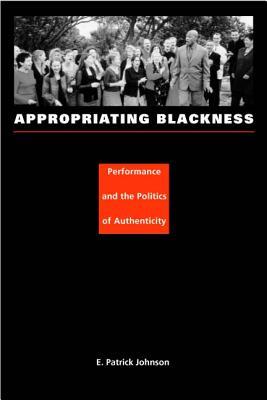Johnson looks at various sites of performed blackness, including Marlon Riggs's influential documentary Black Is . . . Black Ain't and comedic routines by Eddie Murphy, David Alan Grier, and Damon Wayans. He analyzes nationalist writings by Amiri Baraka and Eldridge Cleaver, the vernacular of black gay culture, an oral history of his grandmother's experience as a domestic worker in the South, gospel music as performed by a white Australian choir, and pedagogy in a performance studies classroom. By exploring the divergent aims and effects of these performances-ranging from resisting racism, sexism, and homophobia to excluding sexual dissidents from the black community-Johnson deftly analyzes the multiple significations of blackness and their myriad political implications. His reflexive account considers his own complicity, as ethnographer and teacher, in authenticating narratives of blackness.

Appropriating Blackness: Performance and the Politics of Authenticity
Johnson looks at various sites of performed blackness, including Marlon Riggs's influential documentary Black Is . . . Black Ain't and comedic routines by Eddie Murphy, David Alan Grier, and Damon Wayans. He analyzes nationalist writings by Amiri Baraka and Eldridge Cleaver, the vernacular of black gay culture, an oral history of his grandmother's experience as a domestic worker in the South, gospel music as performed by a white Australian choir, and pedagogy in a performance studies classroom. By exploring the divergent aims and effects of these performances-ranging from resisting racism, sexism, and homophobia to excluding sexual dissidents from the black community-Johnson deftly analyzes the multiple significations of blackness and their myriad political implications. His reflexive account considers his own complicity, as ethnographer and teacher, in authenticating narratives of blackness.